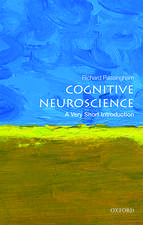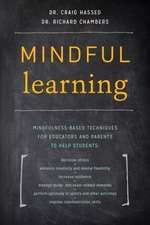Emerging Minds: The Process of Change in Children's Thinking
Autor Robert S. Siegleren Limba Engleză Paperback – 24 iun 1999
Preț: 338.93 lei
Preț vechi: 441.96 lei
-23% Nou
Puncte Express: 508
Preț estimativ în valută:
64.87€ • 70.49$ • 54.53£
64.87€ • 70.49$ • 54.53£
Carte tipărită la comandă
Livrare economică 10-16 aprilie
Preluare comenzi: 021 569.72.76
Specificații
ISBN-13: 9780195126631
ISBN-10: 0195126637
Pagini: 288
Ilustrații: line figures, tables
Dimensiuni: 155 x 234 x 18 mm
Greutate: 0.41 kg
Editura: Oxford University Press
Colecția OUP USA
Locul publicării:New York, United States
ISBN-10: 0195126637
Pagini: 288
Ilustrații: line figures, tables
Dimensiuni: 155 x 234 x 18 mm
Greutate: 0.41 kg
Editura: Oxford University Press
Colecția OUP USA
Locul publicării:New York, United States
Recenzii
This is one of those rare books that promises to change the way that psychologists view the central problem of developmental psychology. . .Siegler provides a cogent and convincing argument that variability is a constant in thought at all levels and provides the key to cutting through to the problem of cognitive change. In addition to providing a wide range of examples showing the centrality of adaptive variability in children's thinking at all levels, Siegler describes a methodology for describing developmental change as it progresses. Few will be able to read it without considering how to apply this model and methods to their own domain of interest. This book will serve as a handbook for anyone who wants to take up the challenge of taking development seriously.











